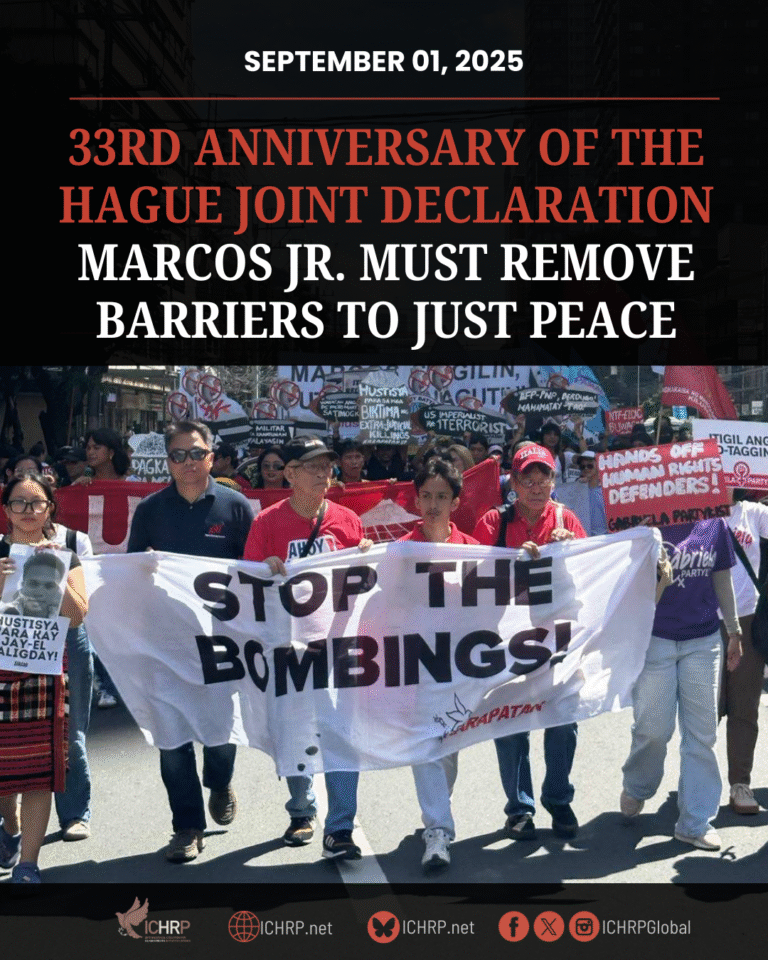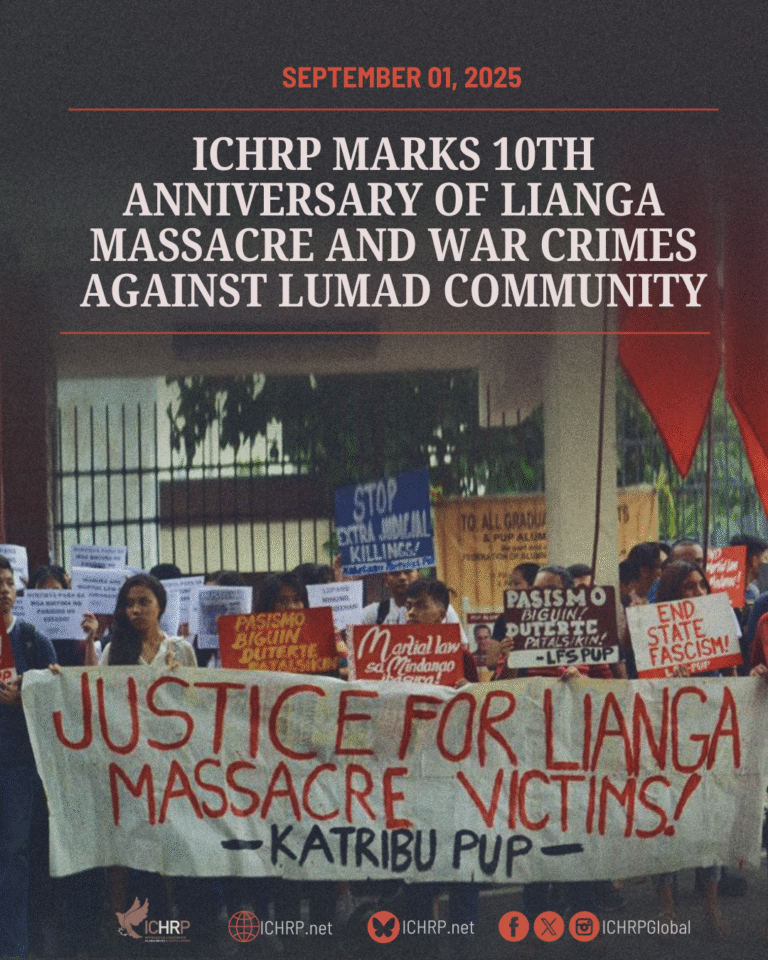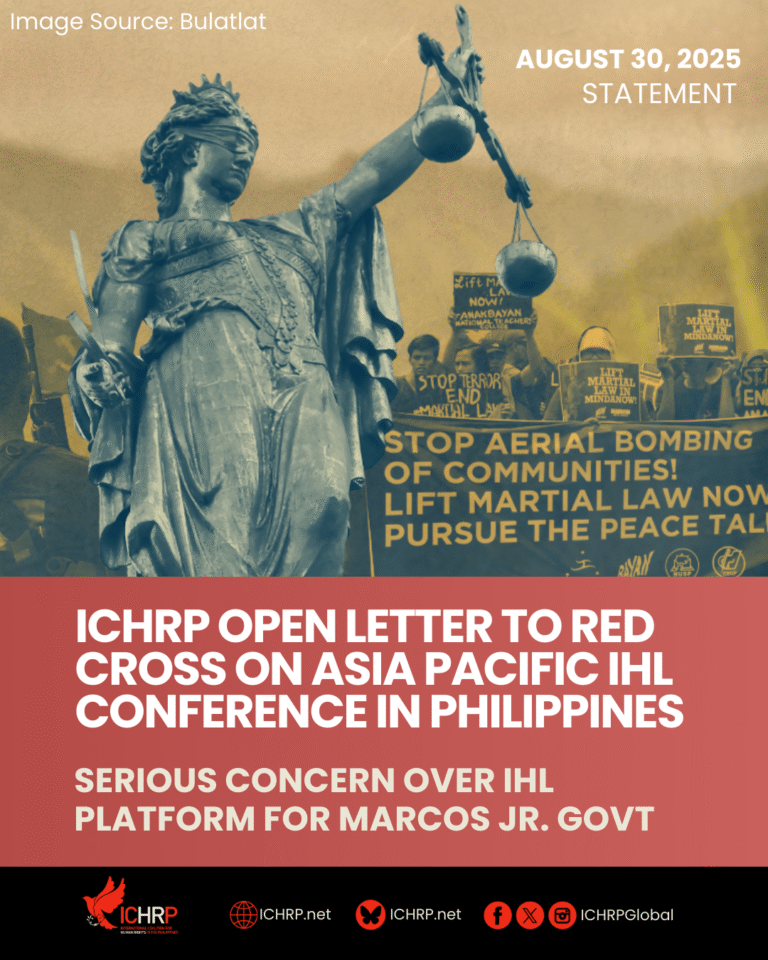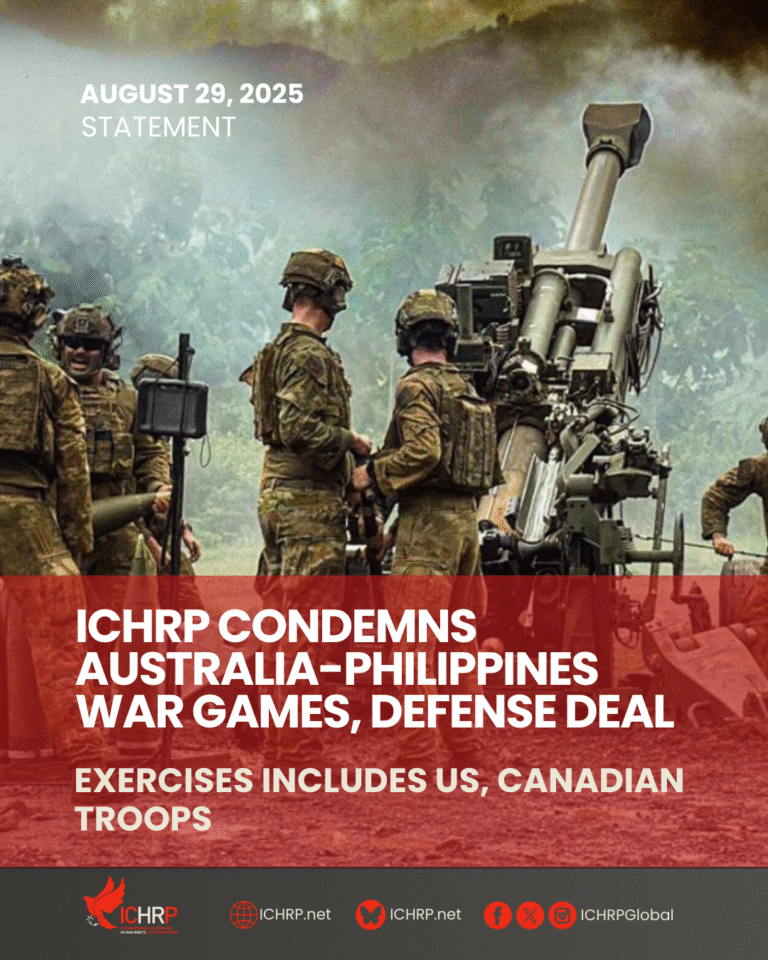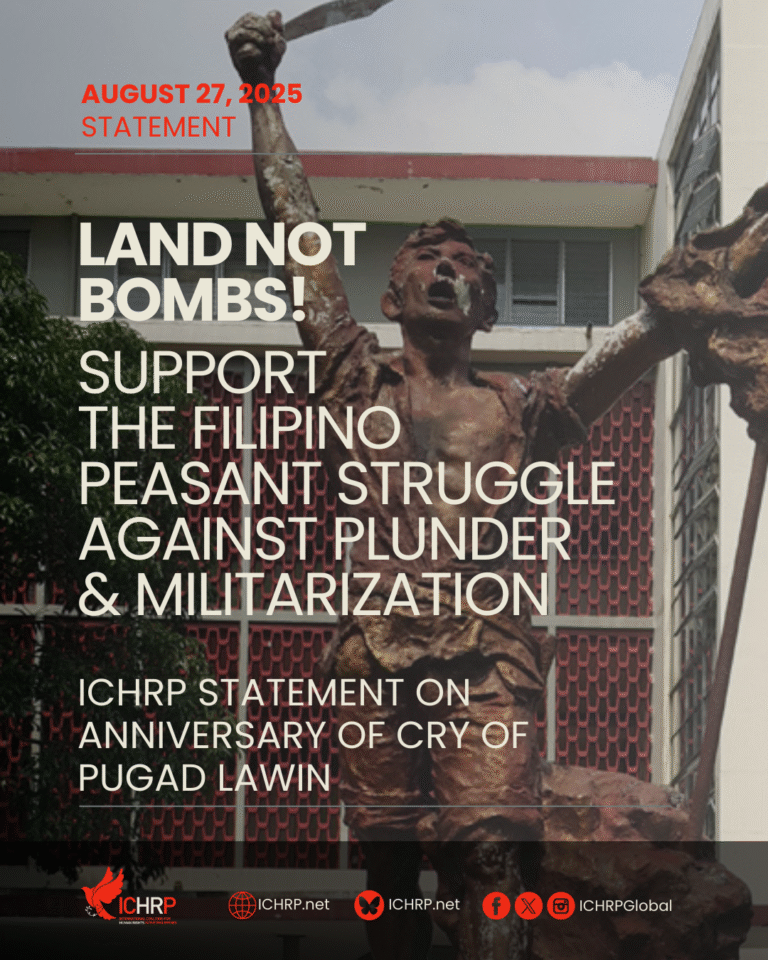Statement
September 1st, 2025
#
September 1st marks the 33rd anniversary of the signing of the Hague Joint Declaration. The document underpinned decades of peace talks between the Government of the Philippines (GRP) and the National Democratic Front of the Philippines (NDFP)
Today, the Marcos government is systematically undermining the principles set forth in the Hague Joint Declaration, which identifies Just and Lasting Peace as the common goal of the GRP and the NDFP. The negotiations are to be conducted in accordance with mutually acceptable principles – including national sovereignty, democracy, human rights, and social justice. The Declaration states that “no precondition shall be made to negate the inherent character and purpose of the peace negotiations.”
This year, the Marcos Jr. government issued its current counter-insurgency program – the National Action Plan for Peace, Unity, and Development (NAP-UPD) – which it claims is enabling “Lasting Peace and Justice.” However, the Marcos Jr. government continues to violate the mutually accepted principles of the Hague Joint Declaration.
Marcos Jr. serves US interests ahead of Philippine sovereignty. The number of US-accessible EDCA military bases has grown by four since 2022 – and military exercises with the US, Australia, and other foreign powers have intensified to the detriment of local communities. Marcos Jr. was quick to sweep his proposed “Economic Charter Change” under the rug after it was shelved in response to massive opposition by progressive and nationalist Philippine groups for its plan to open up the education, media, and other industries to 100% foreign ownership. In the name of “renewable energy,” Philippine land is being opened up to foreign corporations, dispossessing many thousands of peasants.
Peasants and workers are exploited by landlords and employers – both foreign and domestic. Land reform schemes, like SPLIT, are purely voluntary and encourage transfer from one landlord to another – or are by-passed entirely through neoliberal land conversion schemes. There is no social justice from the Marcos Jr. government.
Marcos Jr.’s government blatantly violates human rights and international humanitarian law. Labour leaders, indigenous land defenders, and peasant organizers continue to be disappeared, or arrested on trumped-up charges, or killed. In the past month, the Philippine government has dropped a record number of bombs in close proximity to rural communities – supporting a program of state terror while also violating international humanitarian law (IHL). The NTF-ELCAC partners with local elites and law enforcement to red-tag organizers and threaten communities that support progressive politicians and party-lists. Those same local elites, connected with local paramilitaries and private militia, offer threats (including arson) and bribes (like bags of rice and money) to pressure Filipinos to vote for them.
The Hague Joint Declaration clearly highlights the social goals that the peace talks aim to facilitate. Demands for bilateral ceasefire and unilateral disarmament are arbitrary preconditions that “negate the inherent character and purpose of the peace talks.” Instead of pursuing the mere silencing of guns, the Marcos Jr. government must remove the barriers it has erected to those mutually held principles of national sovereignty, democracy, human rights, and social justice. The Philippine government should then resume the peace talks using the agenda set out in the Hague Joint Declaration and implementing all agreements reached so far.
#




